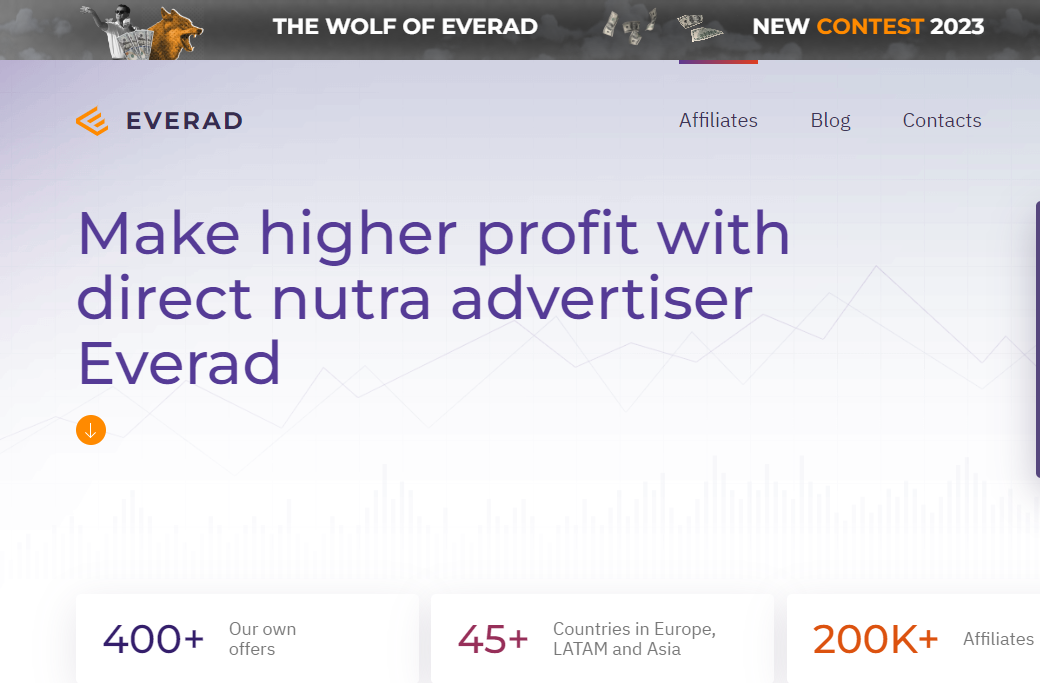Hyvä Theme is Now Open Source: What This Means for Magento Community - Mageplaza
Hyvä is now Open Source and free. Discover what changed, what remains commercial, how it impacts the Magento ecosystem, and how to maximize its full potential.

As the world of online marketing continues to evolve, new strategies are constantly emerging to help businesses increase their online revenue. One such strategy is CPA affiliate marketing. In this guide, we will explore the basics of CPA affiliate marketing, how it works, the benefits it offers, and how you can choose the right CPA affiliate network to maximize your online revenue.
CPA, or Cost Per Action, affiliate marketing is a performance-based marketing model where affiliates are paid a commission for specific actions taken by their referred customers. Unlike traditional affiliate marketing, where affiliates are paid for sales, CPA affiliate marketing allows affiliates to earn commissions for a variety of actions, such as filling out a form, signing up for a trial, or downloading an app.

To participate in CPA affiliate marketing, affiliates need to join a CPA affiliate network. These networks act as intermediaries between advertisers looking to promote their products or services and affiliates looking to earn commissions. The network provides affiliates with unique tracking links that they can use to promote the advertiser’s offers and track the actions taken by their referred customers.
CPA affiliate marketing offers a win-win situation for both advertisers and affiliates. Advertisers benefit from increased exposure and customer acquisition without upfront costs, as they only pay when a desired action is completed. Affiliates, on the other hand, have the opportunity to earn passive income by promoting offers that align with their audience’s interests.
From the perspective of an online store, CPA (Cost Per Action) affiliate marketing works as follows:

CPA (Cost Per Action) affiliate marketing offers several benefits for both advertisers and affiliates, making it a popular and effective model in the digital marketing landscape. Curious about the compelling perks that make CPA affiliate marketing an industry favorite? Here are some of the key benefits of CPA affiliate marketing:
In essence, CPA affiliate marketing empowers businesses to leverage the influence, expertise, and reach of affiliates to drive conversions while maintaining a cost-effective approach. By building strategic partnerships and tapping into varied marketing channels, businesses can unlock significant growth potential and maximize their return on investment.
CPA affiliate marketing categories come in 3 forms, each catering to different audiences and niches. These types of CPA marketing include:
Pay Per Action, also called CPA (Cost Per Action) or Cost Per Acquisition, is a performance-based model. It’s beneficial for advertisers as they pay only for actions that meet their campaign goals. Publishers benefit from promoting various actions, reaching different audience segments and niches.
| Pros of Pay Per Action (PPA) | Cons of Pay Per Action (PPA) |
|---|---|
| Cost Efficiency: Advertisers only pay for desired actions, making PPA a cost-effective model. | Limited Control: Advertisers have less control over the quality of traffic and conversions. |
| Clear ROI: Advertisers can measure the direct impact of their campaigns through specific actions. | Conversion Variability: Achieving consistent conversion rates can be challenging due to market fluctuations. |
| Diverse Actions: PPA accommodates a range of actions, catering to various campaign goals. | Risk of Fraud: Advertisers need to guard against fraudulent activities that inflate actions without value. |
| Low Entry Barrier: PPA is accessible to affiliate marketers with minimal upfront investment. | Scalability Issues: Scaling campaigns might lead to quality degradation if not managed effectively. |
| Flexible Campaigns: Advertisers can experiment with different actions to find what resonates best. | Limited Brand Exposure: Focusing solely on actions might undermine brand recognition and visibility. |
| Performance Focus: PPA aligns interests as affiliates aim for high-quality actions that convert. | Conversion Lag: Results might not be immediate, requiring patience and consistent optimization. |
Pay Per Sale, also known as Cost Per Sale, means that the publisher gets paid when the user purchases through their affiliate link. This model is particularly effective for businesses with tangible products or services, as affiliates are incentivized to drive quality traffic that converts into paying customers.
| Pros of Pay Per Sale (PPS) | Cons of Pay Per Sale (PPS) |
|---|---|
| High-Quality Traffic: Affiliates are motivated to drive high-quality traffic that converts into actual sales. | Lower Conversion Rates: Since affiliates are only paid when a sale occurs, conversion rates may vary and can be lower compared to other models. |
| Reduced Risk for Advertisers: Advertisers only pay when a transaction is successfully completed, minimizing the risk of spending on non-converting actions. | Limited to Tangible Products: PPS is most suitable for businesses with tangible products; it might not work as effectively for service-based offerings. |
| Direct Alignment with Business Goals: The model directly aligns with advertisers' primary objective - generating revenue through sales. | Long Sales Cycle Challenges: For products with longer sales cycles, tracking and attributing the sale to a specific affiliate can be more complex. |
| Incentivizes Performance: Affiliates are incentivized to actively promote products that have higher potential for sales, resulting in more focused efforts. | Potential for Lower Earnings: Depending on the product's price point, affiliates might earn less per conversion, especially compared to other CPA models. |
| Potential for Higher Earnings: Successful sales can yield higher payouts for affiliates, especially for products with premium price points. | Seasonal Fluctuations: Sales volumes might fluctuate based on seasons or market trends, affecting affiliate earnings. |
| Direct Impact on Revenue: Advertisers can directly attribute revenue to specific affiliates, making it easier to measure ROI. | Limited to Final Touchpoint: PPS focuses solely on the final conversion, potentially overlooking the contribution of affiliates to earlier stages of the customer journey. |
Recurring Payments is a special type of CPA marketing that introduces a level of stability to the CPA landscape. Under this model, the publisher gets paid every time the user renews their subscription or membership through their affiliate link.

Recurring Payments offer a win-win scenario: advertisers benefit from sustained revenue streams, while affiliates enjoy ongoing commissions for retaining customers.
| Pros of Recurring Payments in CPA Marketing | Cons of Recurring Payments in CPA Marketing |
|---|---|
| Steady Revenue Stream: Recurring payments provide a consistent income source for affiliates, leading to more predictable earnings. | Longer Conversion Period: Unlike one-time actions or sales, recurring payments may require a longer time to accumulate substantial earnings. |
| Higher Lifetime Value: Affiliates can earn commissions over the entire customer lifecycle, resulting in potentially higher overall earnings per customer. | Higher Customer Retention: Recurring payments often depend on customers continuing their subscriptions, which requires maintaining high-quality products or services to retain customers. |
| Stronger Incentives for Affiliates: The promise of ongoing commissions incentivizes affiliates to put in more effort to refer high-quality, engaged customers. | Higher Churn Rate Impact: If customers cancel subscriptions, it can lead to a drop in both affiliate earnings and advertiser revenue, impacting stability. |
| Supports Long-Term Partnerships: Recurring payments encourage affiliates to build long-term relationships with advertisers, fostering collaboration and loyalty. | Initial Conversion Challenges: Convincing customers to commit to a recurring subscription can be more challenging than a one-time purchase, requiring more persuasive marketing strategies. |
| Passive Income Potential: Once affiliates have referred customers, they can continue earning commissions without continuous effort, resulting in a form of passive income. | Risk of Customer Complaints: If the quality of the product or service decreases, customers may cancel subscriptions, affecting both customer satisfaction and affiliate earnings. |
| Sustained Customer Engagement: Affiliates are motivated to provide ongoing value and engagement to customers to ensure they maintain their subscriptions. | Complex Tracking and Reporting: Tracking recurring payments requires more complex systems and reporting mechanisms compared to one-time actions. |
| Scale Potential: As more customers sign up for recurring services, affiliates' earnings can scale up exponentially over time. | Varied Subscription Duration: Different products or services might have varying subscription durations, leading to inconsistency in affiliate earnings. |
When it comes to choosing a CPA affiliate network, there are several factors to consider. Firstly, you want to ensure that the network offers a wide range of high-quality and reputable offers. Look for networks that have strong relationships with advertisers in your niche and a track record of timely payments.
Secondly, consider the network’s tracking and reporting capabilities. A reliable tracking system is crucial to accurately monitoring the performance of your campaigns and optimizing your marketing efforts accordingly. Additionally, look for networks that provide detailed reports and analytics to help you make data-driven decisions.
Lastly, consider the network’s support and resources. A good CPA affiliate network should offer dedicated account managers who can provide guidance and support throughout your affiliate marketing journey. They should also provide resources such as marketing materials, landing pages, and ad creatives to help you effectively promote their offers.
Now that we’ve explored the basics of CPA affiliate marketing and how to choose the right network, let’s take a look at some of the best CPA affiliate networks in the industry:

Everad embarked on its journey in 2012, gradually evolving into a leading CPA network focused on the Nutra vertical. Their exclusive in-house offers stand out due to their exceptionally high approval rates. Perfected scripts, managed by native speakers catering to each region, contribute significantly to these rates, among other factors. Everad sells Nutra products directly. This means affiliates get the biggest payouts because there are no middlemen. It’s simple: no middlemen, more money for affiliates.

MaxBounty is one of the most well-known and reputable CPA affiliate networks in the industry. It has been operating since 2004 and offers over 2,000 active campaigns across various verticals and niches. It offers a wide range of offers spanning various niches, including health, finance, dating, and more. MaxBounty is known for its high commissions to affiliates, user-friendly interface, prompt payments, and dedicated affiliate support. The network provides affiliates with detailed tracking and reporting tools, enabling them to optimize their campaigns effectively.

Clickbooth is now part of Perform[cb], a leading performance marketing network that was formed by the merger of Clickbooth, Adperio, and Ignite OPM in 2020. Perform[cb] has thousands of curated offers from top brands and advertisers in various categories, such as health, lifestyle, dating, entertainment, and more. Perform[cb] also offers high payouts, weekly payments, and 24/7 support to its affiliates.

CPAGrip stands out as a top player in affiliate marketing, boasting a strong history of success and satisfied publishers since 2013. Their advanced tools, including the URL Locker, Content Locker, Offer Wall, and others, combined with the vast inventory of 2000+ incentive offers, along with the committed support team and skilled development technicians, have established CPAGrip as a highly regarded performance platform for both publishers and advertisers.
To leverage the full potential of CPA affiliate marketing, businesses should adhere to the following best practices:
Choose affiliates whose audience closely aligns with your target market! You should look for affiliates with relevant traffic sources and a proven track record of driving conversions in your niche.
For example, your store sells clothing for young people aged 16-25. You need to choose affiliates with many followers in the same age range who are also interested in fashion. It would be a mistake to seek influencers with followers aged 40-50 who are interested in real estate on social media.

You need to offer appealing commission rates and rewards to encourage affiliates to market your products. However, this figure should be moderate, neither too low nor too high. If the commission is too high, your store’s profits will decrease significantly.
It’s reasonable to offer exclusive deals, discounts, or bundles for affiliate promotions to incentivize their audience to make a purchase. Limited-time offers and special promotions can create a sense of urgency and drive immediate action. You can offer different offers to each affiliate based on their level of influence.
Unleashing the power of your top affiliates with lucrative bonuses, exciting incentives, and exclusive perks is important. You can ignite friendly competition with performance-based contests and leaderboards, propelling everyone to new heights. Additionally, you should shower them with well-deserved bonuses, attractive incentives, and exclusive privileges. Spark a spirit of healthy competition through performance-driven contests and leaderboards, pushing everyone to achieve greatness.
CPA affiliate marketing is a powerful strategy for maximizing your online revenue. By understanding the basics of CPA affiliate marketing, how it works, the benefits it offers, and how to choose the right CPA affiliate network, you can unlock its potential and take your online revenue to new heights. Remember to choose offers that align with your audience’s interests, track the performance of your campaigns, and continuously optimize your marketing efforts.
Join a reputable CPA affiliate network today and start maximizing your online revenue!